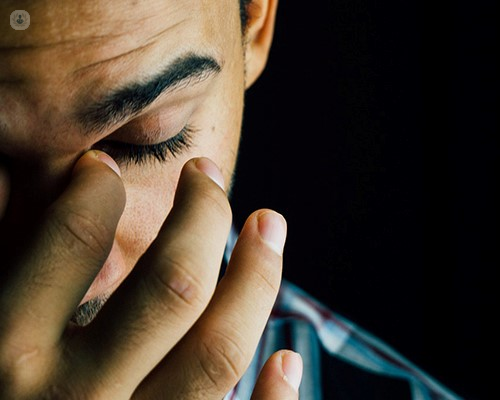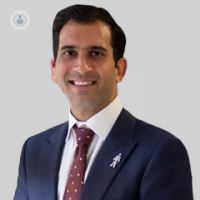Managing lower urinary tract symptoms: Causes, diagnosis, treatment
Written in association with:Lower urinary tract symptoms (LUTS) encompass a range of issues affecting both men and women, manifesting beyond the urine passage. While these symptoms can significantly impact one's quality of life, understanding their causes and available treatment options is crucial for effective management. In his latest online article, Mr Taimur Shah delves into the common causes, diagnostic procedures, treatment modalities, lifestyle adjustments, and potential complications associated with untreated LUTS.

Causes of lower urinary tract symptoms:
Lower urinary tract symptoms can arise from various sources, notably the prostate in men and the bladder in both genders. In men, symptoms often stem from an enlarged prostate, leading to issues such as slow urinary flow, incomplete bladder emptying, frequent urination, and nocturia (waking up at night to urinate). Women also experience similar symptoms, including urinary frequency, urgency, and the sensation of incomplete bladder emptying. As individuals age, the prostate may enlarge, causing obstruction, while bladder sensitivity can increase, resulting in overactive bladder symptoms.
Diagnosis of lower urinary tract symptoms:
Accurate diagnosis begins with a comprehensive medical history and discussion with a healthcare provider. Specialised questionnaires assess symptom severity, guiding further evaluation. Non-invasive tests, including urine culture to detect inflammation or infection, and ultrasound scans to visualise the kidneys and bladder, aid in diagnosis. Uroflowmetry measures urinary flow rate, assisting in quantifying symptoms. Invasive procedures such as cystoscopy may be necessary in select cases but are generally reserved for specific diagnostic challenges.
Treatment options for male and female LUTS:
Initial management focuses on lifestyle modifications, including bladder diaries to monitor urination patterns and dietary adjustments such as reducing caffeine and alcohol intake. Medical interventions, such as medications to improve urinary flow or reduce frequency, offer symptomatic relief. Surgical options vary based on the underlying cause; for enlarged prostates, minimally invasive procedures like Urolift or bipolar transurethral resection of the prostate (TURP) may be recommended. Laser therapies provide alternative approaches for prostate enlargement. Tailored treatment plans address individual needs and preferences.
Lifestyle changes to alleviate symptoms:
In addition to medical interventions, lifestyle adjustments play a pivotal role in managing LUTS. Regulating fluid intake, avoiding bladder irritants, and maintaining a healthy weight can alleviate symptoms and enhance overall bladder function. Incorporating pelvic floor exercises and maintaining regular bowel habits further supports urinary health.
Potential complications of untreated LUTS:
While treatment for LUTS generally has a favourable side effect profile, untreated symptoms can lead to complications. Medications may cause adverse effects such as dry mouth, constipation, or changes in blood pressure and sexual function. Surgical interventions carry risks including erectile dysfunction, retrograde ejaculation, and urinary incontinence. However, the benefits of treatment often outweigh these potential complications, emphasising the importance of proactive management.
Mr Taimur Shah is an esteemed urologist. You can schedule an appointment with Mr Shah on his Top Doctors profile.


